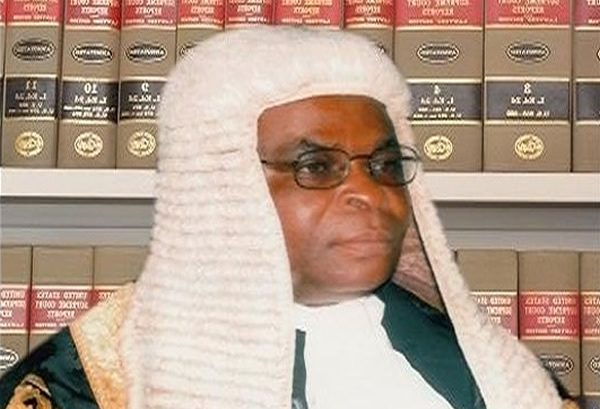Court of Appeal in Abuja will today hear three appeals filed by a former Chief Justice of Nigeria (CJN), Justice Walter Onnoghen, against the judgment of the Code of Conduct Tribunal (CCT) which ordered his removal from office in 2019.
The Court of Appeal informed parties in the matter of the hearing date in a notice it issued through its Registry, which The Nation sighted yesterday.
The notice reads: “Please, take notice that the above matter is listed for hearing on Tuesday, August 20, 2024 at 9 o’clock in Court Appeal, Abuja Division. Please, take note that this serves as a hearing notice.”
The appeals, filed since 2019, have the Federal Republic of Nigeria as the sole respondent.
By the appeals, Justice Onnoghen is, among others, praying the Court of Appeal to set aside the judgment delivered by the CCT on April 18, 2019, which sacked him from office.
He is contending, among others, that the CCT was without the requisite jurisdiction, was biased and allegedly denied him fair hearing.
The CCT had, in its judgment, convicted Onnoghen on all the six counts contained in the charge on which he was tried, including an alleged breach of Code of Conduct for Public Officers.
In its lead judgment delivered by the then Chairman, Danladi Umar, the CCT ordered Onnoghen’s immediate removal from office as the CJN.
It also stripped him of all offices he earlier occupied, including the Chairman of the National Judicial Council (NJC), and Chairman of the Federal Judicial Service Commission (FJSC).
The tribunal also ordered the forfeiture of his five bank accounts and the money in the accounts which he did not declare in his asset declaration form submitted to the Code of Conduct Bureau (CCB), an agency of the Federal Government.
In his appeals, Onnoghen, maintained that the CCT panel erred in law and caused a miscarriage of justice against him, when it failed to decline jurisdiction to entertain the six-count against him.
He contended that the CCT chairman ought to have recused himself from presiding over his trial.
In his seven-point reliefs, the ousted CJN applied for an order setting aside his conviction as well as quashing the order for forfeiture of his assets.
He prayed the court to discharge and acquit him of all the charges levelled against him.
Listing some of the particulars of error in the CCT’s verdict, Onnoghen argued that he was a judicial officer at the time the charges were filed against him on January 11, 2019, adding that as such he could not be subjected to the jurisdiction of the lower tribunal.
“0n the authority of Nganiiwa v. FRN (2018) 4 NWLR (Pt. 1609) 30: at 340. 341, only the National Judicial Council (NJC) has the power to discipline the appellant for misconduct and not the lower tribunal.
“The lower tribunal had, in the case of FRN V. Sylvester Nwali Nguta in charge number CCT/ABJ/01/2017 delivered on January 9, 2018, affirmed the position of the court in FRN Nganjiwa v. FRN and dismissed the charges and acquitted and discharged Justice Ngwuta being a judicial officer subject only to the discipline of the National Judicial Council.
“The lower tribunal has no jurisdiction over serving judicial officers, such as the appellant, save the National Judicial Council.
“The Motion on Notice, dated January 14, 2019, challenging jurisdiction ought to be granted in all material particular as it purports to save the lower tribunal of needless futile exercise.”
In this article
